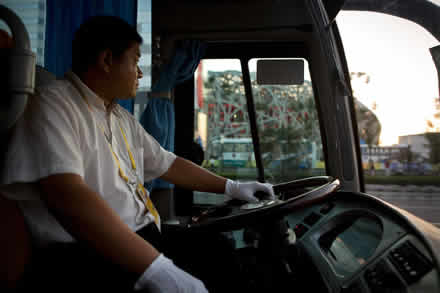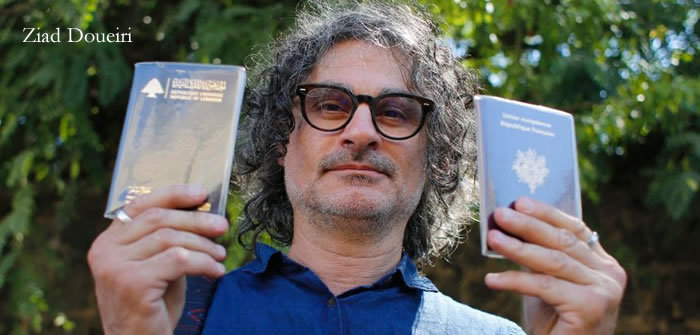 Beijing Taxi is a feature-length documentary that portrays the ancient capital of China undergoing a profound transformation. The intimate lives of three taxi drivers are seen as they navigate a quickly morphing city, confronting modern issues and changing values.
Beijing Taxi is a feature-length documentary that portrays the ancient capital of China undergoing a profound transformation. The intimate lives of three taxi drivers are seen as they navigate a quickly morphing city, confronting modern issues and changing values.
BeijingTaxi communicates a visceral sense of the common citizens’ persistent attempts to grasp the elusive. The 2008 Summer Olympic Games serve as the backdrop for Beijing Taxi‘s story, a coming out party for a rising nation and a metaphor for Chinese society and its struggles to reconcile enormous contradictions while adjusting to a new capitalist system that can seem foreign to some in the Communist-ruled and educated society.
Miao Wang, director of Beijing Taxi, is based in New York, currently splitting her time between NY and Beijing. Born and raised in Beijing just after the Cultural Revolution, she grew up with the last remnants of a pre-modernized Communist China. She immigrated to the US in 1990, a year after the Tiananmen Square massacre.
Her first half-hour documentary film, Yellow Ox Mountain (2006), which she directed, produced and edited, is a look at the impact of China’s Cultural Revolution on two Chinese contemporary artists based in New York. It has  screened at over 20 film festivals and institutions worldwide, received a Best Short Film Award, broadcast on Thirteen/WNET, and is distributed by Filmmaker’s Library.
screened at over 20 film festivals and institutions worldwide, received a Best Short Film Award, broadcast on Thirteen/WNET, and is distributed by Filmmaker’s Library.
Bijan Tehrani: What motivated you to make Beijing Taxi?
Miao Wang: Well, I grew up in Beijing, so it is my hometown. I left and immigrated to the US when I was 12, and it took about fifteen years for me to return, so during that period I witnessed Beijing change so much and so rapidly. It changed to a place that I no longer recognized, so that is what motivated me to make the film. I felt that I needed to document and capture this era of change in Beijing. With the Olympics coming, I knew that they would bring on this accelerated speed of change that I knew I wanted to work in. With the taxi drivers, I really wanted to capture the characters of the city and I felt that taxi drivers are purely beijingers. They work on the ground and we see through them. Visually, it is also very stunning to be able to look at the world outside and the world within. Taxi’s are like a thread to tell the story of thread.
BT: How did you find the taxi drivers that are a part of your film? MW: The first trip I took, which was in November of 2006, was basically a casting trip and I stayed for a month and a half. I got familiarized with the city and took a lot of taxi rides. Through these trips, I met many different people and took notes on how I connected with the drivers and got a sense of their personalities. So, that is how I met the three drivers. Initially I was following about five or six, and I collected many telephone numbers, but from the beginning I knew that I only wanted to have three.
MW: The first trip I took, which was in November of 2006, was basically a casting trip and I stayed for a month and a half. I got familiarized with the city and took a lot of taxi rides. Through these trips, I met many different people and took notes on how I connected with the drivers and got a sense of their personalities. So, that is how I met the three drivers. Initially I was following about five or six, and I collected many telephone numbers, but from the beginning I knew that I only wanted to have three.
BT: How did you develop the visual style of the film?
MW: I always felt that the timeline of the Olympics would be the natural structure for the film. I did not know how I would portray the three characters, but I decided that I would intercut and I really wanted Beijing to be an unspoken character in the film. Eventually the structure became the “1, 2, 3” presentation of the drivers, with Beijing represented in visual montages.
BT: How challenging was it to make your first film?
MW: Shooting was actually not as hard as people think. Since I wasn’t shooting in any sensitive locations—I was mostly filming in a cab and other times I was filming in homes—most of our work took place in private locations. The few times we filmed in public spaces, we ran into some people that we had problems with. It was funny because both of my cinematographers are American, so most people would assume that they were tourists and I was just the translator—which would often allow me the freedom that we needed. 
BT: Was the evolution of the city drastically different during your shooting period?
MW: Yes, I did feel like that because I began filming two-years before the Olympics. It was very much accelerated; Beijing was changing ten-years ago and it has changed a lot since 1990, but in this time-frame they were desperately trying to be ready for the Olympics. I felt that there was this constant mentality amongst the people that they would continue trying, even if they failed. So, to me, that was also very interesting.
BT: Did you see any signs of Capitalism in the city?
MW: Yeah, when I am in Beijing now, I feel that I could be in any cosmopolitan city in the world. There is a lot of culture and willingness to try different things. Beijing was a completely different city when I left it 20-years-ago. Then, it was much more idealistic and everyone lived modestly together. Now, people are motivated to start businesses and have careers. It is almost like it’s capitalism with a communist government.
BT: Have any of the cab drivers seen the finished film?
MW: No, not in its finished form because the last time I was in Beijing was last May, so I haven’t been back to show them the final cut. Though, I have shown the drivers some rough cuts of the sequences.
BT: Do you have a US distributor yet?
MW: No, not yet. There has been interest from some entities, but I haven’t really finalized anything.
BT: Will the film be shown in any upcoming festivals?
MW: Yes, it will be screened in L.A. and then we will be going to Baltimore for the Maryland film festival next weekend on the 7th and 8th. Then, after that, we might actually have a screening in Beijing because I am going to Asia for three months and we will be having a screening in Cambodia.
BT: Any new projects that you are working on?
MW: Nothing totally finalized, but I am researching a couple different projects in Beijing.
BT: Thank you for your time.

